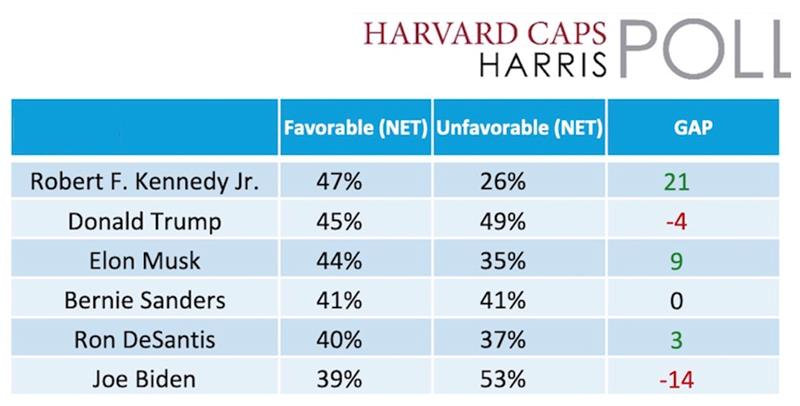Imagine a workplace where everyone shows up with not just their physical presence, but also their passion and commitment. A place where every employee feels a sense of ownership for their work and accountability for their results. A place where change is welcomed as a driver of innovation and improvement rather than feared as a threat. This might sound like a dream, but it's entirely achievable. By cultivating a culture of accountability and ownership, organizations can inspire workers to embrace change, drive innovation, and improve performance.
Accountability and Ownership: The Power Duo
Accountability and ownership are two key attributes that can empower employees, foster a positive work environment, and propel business growth.
In the words of Bob Proctor, a renowned speaker and author on personal development, "Accountability is the glue that ties commitment to results." When employees are accountable, they take responsibility for their actions and outcomes, which motivates them to deliver their best work (Proctor, 2018).
Ownership, on the other hand, instills a sense of pride and commitment. When employees feel like they "own" their work, they are more engaged, more productive, and more likely to go the extra mile to ensure success (Deci & Ryan, 2000).
Creating a Culture of Accountability and Ownership
But how can organizations cultivate such a culture? Here are a few strategies:
- Set Clear Expectations: Clear, measurable, and achievable expectations provide a framework for accountability. Leaders should communicate these expectations and ensure that employees understand them (Lencioni, 2002).
- Encourage Autonomy: Providing employees with autonomy gives them a sense of control over their work, fostering a sense of ownership. Leaders should encourage independent decision-making and problem-solving, providing support and guidance when needed (Gagné & Deci, 2005).
- Promote Open Communication: Open communication can help to build trust, which is crucial for accountability. Regular feedback and open discussions about progress and challenges can foster an environment where accountability thrives (Edmondson, 2004).
- Recognize and Reward: Recognizing and rewarding employees for taking ownership and showing accountability can reinforce these behaviors. Rewards can take many forms, from verbal recognition to financial incentives (Kerr, 1995).
The Impact of a Culture of Accountability and Ownership
A culture of accountability and ownership doesn't just improve individual performance; it can also have a transformative effect on the organization as a whole.
Such a culture can inspire employees to embrace change, as they feel personally invested in the success of the organization and are more willing to adapt to achieve that success. A study by O'Reilly III, Caldwell, Chatman, & Doerr (2014) showed that firms with a strong culture of accountability and ownership were more adaptable and performed better financially.
Moreover, this culture can also drive innovation. When employees feel a sense of ownership, they are more likely to seek out new and better ways to do their work, driving innovation and continuous improvement (Amabile, 1998).
The Role of Leadership in Cultivating Accountability and Ownership
Leaders play a vital role in fostering a culture of accountability and ownership. They must lead by example, demonstrating accountability in their own actions and decisions. When leaders take ownership of their responsibilities, it sets a powerful example for others to follow. Additionally, leaders can implement the following practices:
- Provide Resources and Support: Leaders should ensure that employees have the necessary resources, tools, and training to fulfill their responsibilities. By providing support, leaders empower employees to take ownership and accountability for their work (Eisenbeiss, Knippenberg, & Boerner, 2008).
- Promote Collaboration: Encouraging collaboration and cross-functional teamwork creates a sense of shared ownership and collective responsibility. When employees work together towards a common goal, they are more likely to hold each other accountable and achieve better outcomes (Hernandez, Eberly, Avolio, & Johnson, 2011).
- Foster a Learning Culture: A culture of continuous learning and growth nurtures ownership and accountability. Leaders can foster this culture by promoting professional development opportunities, encouraging knowledge sharing, and embracing a growth mindset (Dweck, 2006).
- Lead with Trust: Trust is the foundation of accountability and ownership. Leaders should build trust by being transparent, honoring commitments, and creating a psychologically safe environment where employees feel comfortable taking risks and making decisions (Mayer, Davis, & Schoorman, 1995).
Cultivating a culture of accountability and ownership is a transformative journey for organizations. By emphasizing these values and empowering employees to take ownership, organizations can inspire workers to embrace change, drive innovation, and improve performance.
Through setting clear expectations, encouraging autonomy, promoting open communication, and recognizing achievements, leaders can create an environment where employees feel a sense of pride and responsibility for their work. This culture not only benefits individual employees but also contributes to the overall success and adaptability of the organization.
Remember, accountability and ownership are not limited to specific roles or departments within an organization. It is a collective effort that requires commitment from leaders, managers, and employees at all levels. By embracing a culture of accountability and ownership, organizations can unleash the full potential of their workforce, leading to increased engagement, improved performance, and sustained success.
References
Amabile, T. M. (1998). How to kill creativity. Harvard Business Review, 76(5), 76-87.
Deci, E. L., & Ryan, R. M. (2000). The "what" and "why" of goal pursuits: Human needs and the self-determination of behavior. Psychological Inquiry, 11(4), 227-268.
Dweck, C. S. (2006). Mindset: The new psychology of success. Random House.
Edmondson, A. C. (2004). Psychological safety, trust, and learning in organizations: A group-level lens. Trust and distrust in organizations: Dilemmas and approaches, 239-272.
Eisenbeiss, S. A., Knippenberg, D. V., & Boerner, S. (2008). Transformational leadership and team innovation: Integrating team climate principles. Journal of Applied Psychology, 93(6), 1438-1446.
Gagné, M., & Deci, E. L. (2005). Self-determination theory and work motivation. Journal of Organizational Behavior, 26(4), 331-362.
Hernandez, M., Eberly, M. B., Avolio, B. J., & Johnson, M. D. (2011). The loci and mechanisms of leadership: Exploring a more comprehensive view of leadership theory. The Leadership Quarterly, 22(6), 1165-1185.
Kerr, S. (1995). On the folly of rewarding A while hoping for B. *Academy of Management Journal.
IMPORTANT MESSAGE:
Thank you for investing your time in reading this article. If the ideas and insights shared here resonate with you, and if you're eager to implement these principles within your own organization, we would be thrilled to embark on this journey with you.
Joseph and his experienced team specialize in guiding businesses towards a culture that champions transformative leadership and prioritizes employee mental wellness.
We understand that the success of an organization is deeply intertwined with the well-being of its employees. That's why we are passionate about helping organizations create healthier and more productive workplaces. If you're ready to foster a culture of accountability, ownership, and positive change,
we invite you to start a conversation with Joseph and his team today.
Let's work together to build a workplace where employees thrive, innovation flourishes, and performance reaches new heights.
Reach out to Joseph and his team now
and let's begin this transformative journey together!














